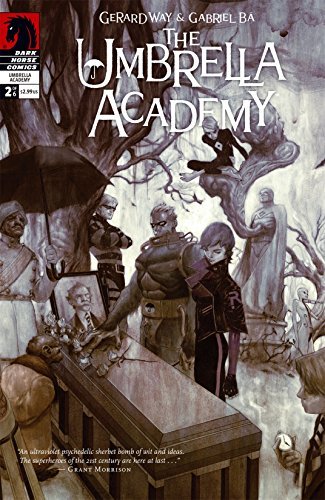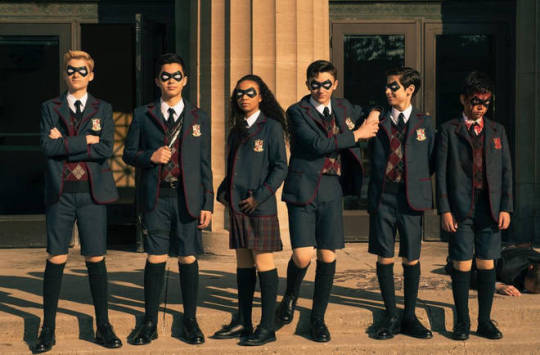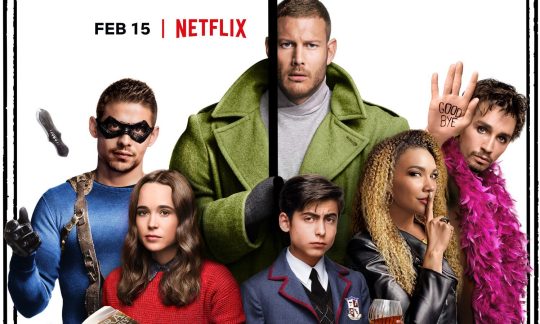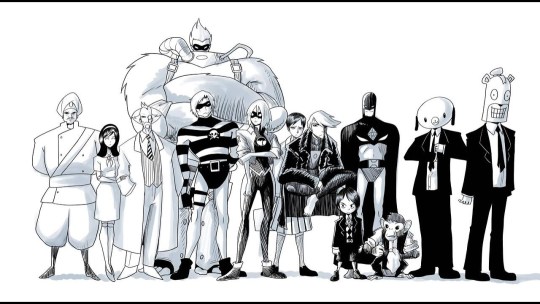#maybe its because gerard is so often portrayed as like. not invested in his art or a liar when that doesnt even really fit the way
Text
to me the hes alien 2 thing has never felt like a lie, moreso an honesty in the moment that changes and gerard never corrects which is much more how gerard operates than outright being a liar. like gerard almost certainly was planning on another album but, after looking at the poor warner support/understanding of hes alien (esp refusing to emphasize its britpopian nature to a british audience) he very specifically switched to singles (rolling stone article around germs/baby your a haunted house heavily alludes to warner being the reason for the shift in music format) and then outright pivoted to comics -> the plan changed/gerard is too willing to voice a thought or future that is not set in stone
#gerard is a liar the way we are all liars. i think this is interesting tho being it fits the confessional nature of their lyrics/persona#so honest as to be fundamentally dishonest -> the patient is both fabrication and yet also real#anyway i dont know why i think about this a lot but i do#maybe its because gerard is so often portrayed as like. not invested in his art or a liar when that doesnt even really fit the way#he talks about his own process like from his own words#and that projection so easily bothers the shit out of me#but maybe im also projecting! idk.#anyway RELEASE THE JAZZY HES ALIEN SEQUEL TRACKS ON SOUNDCLOUD GERARD#my posts
33 notes
·
View notes
Text
How “The Umbrella Academy” Surprised Me
In many ways, good and bad.
This is a spoiler-free review of season one of The Umbrella Academy
I remember when The Umbrella Academy comics came out. It was 2007 and I was a broke thirteen-year-old living in suburban Australia (a cultural wasteland!) so I never actually read them, but as a rabidly obsessed My Chemical Romance/Gerard Way fan, I managed to fold The Umbrella Academy into my identity anyway. I’m not sure exactly how that works, but hey. Adolescents are powerful creatures.

As a distinguished almost-twenty-five-year-old (I’d like to acknowledge that I took a small break here to have an existential crisis) my walls are free of band posters and my eyes are no longer encircled with that thick black eyeliner that always managed to look three days old and slept in, but I still got kind of a thrill when I learned that The Umbrella Academy was being adapted into a Netflix show. It was something I had always assumed I would end up reading, back in the depths of my emo phase (which is probably more accurately defined as a My Chemical Romance phase) but then just kind of forgot about. So, great, I’m simultaneously being reminded that this thing exists, and freed of the nostalgic obligation to go seek out the comic and read it. As much as I love reading, comics have just never been my thing.
Then the trailer came out. Honestly, it kind of killed my enthusiasm. It just looked kind of generic. Apocalypse. Superpowers. Bold characters. Lots of action. My takeaway was a big ol’ “Meh.” Frankly, without my pre-existing attachment to Gerard Way and the very idea of The Umbrella Academy, I highly doubt I would have given it a chance - not because it looked inherently bad, but just because I’m a hard sell on the kind of show it appeared to be.
But it’s Gerard Way, man. I had to watch at least one episode.

The Umbrella Academy centres around the famous-yet-mysterious Hargreeves family. The seven children - six of whom have special powers - were adopted by Reginald Hargreeves, a cold and severe patriarch who didn’t even deign to name them. He made them into “The Umbrella Adademy,” a crime-fighting squad of tiny children who would later dissolve after a tragic incident. Now they’re grown up, and Dad’s dead. His spare and tense memorial is what brings the adult Umbrella Academy back together, and this is where the show kicks off.
We’re treated to a rather clumsy beginning; a gripping opening scene followed by an unimaginative montage. We get a glimpse of each of the Hargreeves’ regular lives, leading up to and including them learning of their father’s death. It’s a heavy-handed introductory roll-call, complete with on-screen name cards. It’s a baffling waste of time, considering we don’t learn anything in this montage that isn’t later reiterated through dialogue or behaviour. We don’t need to see Klaus leaving rehab to know he’s an addict. We don’t need to see Allison on the red carpet to know she’s a movie star. It dragged, even on a first watch not knowing that the whole thing would be ultimately pointless, and I’m surprised no one thought to cut it and let us go in cold with everyone arriving at the mansion for the memorial - an opening that would have both set the tone and let us get to know the characters much more naturally. Maybe it feels like I’m focusing too much on this, and that’s only because it gave me a bad first impression - and I want anyone who reacts the same way I did to stick with it. It really does get better.
The further we got from the montage the less gimmicky it felt, and I started to sense some sort of something that I liked about this show. Stylistically it was interesting, and there seemed to be an underlying depth; room for these characters to be more than brooding ex-vigilantes with daddy issues. I was intrigued enough by the end of episode one to keep watching, and was gratified as the series went on and truly delved into those depths. There was a memorable turning point for me around episode five, where Klaus (the wonderful Robert Sheehan) was given space in the runtime to visibly, viscerally feel the effects of something he had just been through. It sounds so obvious, and so simple, but it’s something that is frustratingly glossed over so often in fiction. You know. Fallout. Feelings.
It wasn’t just that moment, though. Prior episodes laid the groundwork, developing not just Klaus but all the Hargreeves. Each character feels real and grounded, each of them uniquely good, uniquely bad, uniquely damaged by their upbringing. It’s this last point I particularly appreciate, this subtle realism in the show’s execution of abused characters. We see how siblings growing up with the same parents does not necessarily mean they got the same childhood, endured the same abuse, or that their trauma will manifest in the same ways. And certainly, it’s important to see the different coping mechanisms each of them have developed. Furthermore, there is a lot more to each of these characters than just their trauma. There are seven distinct personalities going on, and I have to applaud the writers for this commitment to character. It was largely this that kept me hooked (I’m such a sucker for good characters), and to my own surprise very invested in the way things unfolded.
I love the tone, which found a cool rhythm after the pilot. The pacing was decent and the character development balanced well against the plot. I like the little quirks that remind you of the show’s comic book roots, like Pogo, the talking ape and Five, the grouchy old man in a teenager’s body.
Weirdly, I like the apocalypse stuff, which they managed to put their own spin on despite it being such a played-out trope at this point. I like that the show found small ways to go in unexpected directions, even if the overarching plot and big twists weren’t all that surprising. And most of all I love that in a world saturated with forgettable media, I woke up today still thinking about this show.
Even if not all of my thoughts were so generous.
See, for everything I love about this show, there are also quite a few things that rubbed me up the wrong way. I can’t list them all without going into spoilers, but I think it needs to be said that there are like, a fair few problematic elements in this show. I couldn’t help but notice that while women and people of colour are the minority in this cast, they also seem to cop the worst abuse. Only two of the Hargreeves siblings are female. One of them has no powers and the other’s power is influence (a non-physical power). Their “Mom” is literally a robot created for the sole purpose of caregiving; she dresses and acts like the epitome of a submissive 50s housewife. The Hargreeves sisters are also the ones most likely to be left out or ignored when it comes to making decisions, with one of them even literally losing her voice at one point (yikes!). Beyond that we have some truly disturbing imagery of violence being inflicted on women of colour almost exclusively by white men, and the fact that the only asian character is um… well, he’s literally dead. Before the show even starts.
Overall the problem is not just insufficient diversity, with white men taking up most of the screen time, dialogue and leadership actions, but the way that the few female and non-white characters are depicted.

These are all depictions that, in a vacuum, would be innocuous. I mean, just looking at the root of many of the show’s problems exemplifies that - the root being that all of these characters were white in the source material (uh, a problem in itself, obviously). It wasn’t a problem, for example, when Dead Ben was not the only Asian character but just another white Hargreeves sibling. And wouldn’t it be nice if we lived in a world where you could race or gender-swap any character and have everything mean - or not mean - the same thing. But life is more complicated than that. Art is more complicated than that.

Honestly, I’m not sure if we should give props to the developers of The Umbrella Academy for diversifying their cast when the fact is they did so - and I say this gently - ignorantly and lazily. Race-swapping willy-nilly and leaving it at that ignores a lot of complex issues surrounding the nuances of portraying minorities in fiction, and leaves room for these kinds of harmful and hurtful tropes to carelessly manifest. So many storytellers don’t want to hear it, but let me tell you writer to writer that it does matter if the person being choked is white or black, male or female, trans or cis. It does matter who’s doing the choking. Camera angles matter. Dialogue matters. It’s all a language that conveys a message - about power and dominance and vulnerability in the real world. Because art doesn’t exist inside a vacuum, as inconvenient as that might be. Having the empathy to recognise that will actually make us better storytellers.
In shedding light on these issues, I am not dragging this show. I am not condemning it. And although it is problematic in itself, I’m not even saying it’s problematic to enjoy it. I’m pulling apart the lasagne, looking at the layers, poking and prodding at the individual ingredients and saying, “Hey, the chef probably should have known better than to put pineapple in here. Maybe let’s not do that next time.” I’m also saying, “When I get a mouthful with pineapple in it, I don’t enjoy that. It’s jarring and unpleasant. But it doesn’t ruin the whole meal for me.”
I’m getting better at allowing myself to dislike something on the basis of its shitty themes. To not have to justify myself when something is problematic in a way that just makes it too uncomfortable for me to watch. That wasn’t the case here. I won’t lie; the bad stuff was no afterthought for me. That kind of thing really gets to me. It does ruin a lot for me. But in this case, the show redeemed itself in other ways; mostly by just being a compelling story with characters I liked. I’m trying not to justify that too hard either.
So I liked The Umbrella Academy, and I hope it gets a second season. I also hope that the creators will listen to people like me who want to be able to enjoy their show even more and create more consciously in the future.
And please let Vanya be a lesbian.
The Umbrella Academy is out now on Netflix
Watch this show if you like: witty characters, iconic characters, complex characters, mysteries, dark themes, superpowers, vigilantes, comics, dark humour, epic stories, shows about families, stylistic TV shows, ensemble casts, character dynamics, dramedies
Possible triggers (don’t read if you care about spoilers): suicide, child abuse, claustrophobia, addiction, violence, violence against women, violence against women of colour, death, torture, incest, self-harm, pregnancy/childbirth, kidnapping/abduction, blood, mental illness, medication/themes of medication necessity, blood, manipulation/gaslighting, homicide, forced captivity, guns, hospitalisation, medical procedures, needles, PTSD, prison rape reference (1).
Please feel free to message me if I failed to include a relevant trigger warning and I’ll include it.
22 notes
·
View notes